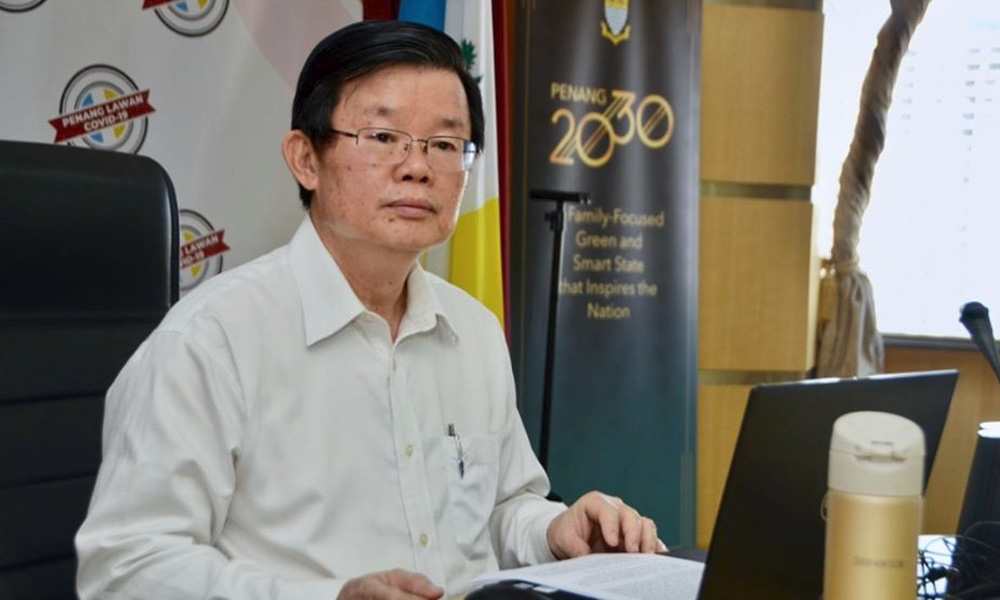MP SPEAKS | Someone told me that we are quite fortunate to live in this age when we are facing the Covid-19 pandemic. Now, he was not revelling in the disease nor the crisis.
His logic was simple; imagine we are living instead during the world wars.
One had to eat a simple ration of food, perhaps even plant one's own sweet potatoes and make do with bare necessities at home.
Today, whether we are living under semi-lockdown or full lockdown due to Covid-19, technology enables us to still maintain a certain level of quality of life.
Granted, there are some who are unfortunately reduced to poverty due to the economic impact of the lockdown, but to the rest of us, we can still enjoy our char kway teow and practically still buy from the world because of technology.
Penang has always been a Malaysian hub for tech innovations.
In the past 10 years, the state government spent millions of ringgit to nurture what would eventually become the Penang Science Cluster (PSC) which networked together tech professionals and enthusiasts of all sorts, providing them with resources and a conducive ecosystem to grow their ideas and work.
As such, in Penang's campaign to fight Covid-19, technology plays an important role.
Chief Minister’s daily broadcast via Facebook Live
At the top of the state administration, Chief Minister Chow Kon Yeow, became the first head of state government in Malaysia to utilise Facebook Live to broadcast his daily "fireside chats" through the heat of the crisis.

This is not only a very efficient and low-cost medium for broadcasting his message, the technology also allows the chief minister to practice strict social distancing.
Journalists do not need to be physically present and they can still follow his announcements online. At its peak, the chief minister's Facebook Live reached over 70,000 people in a day.
High-tech, low-cost public messaging system
The Penang Lawan Covid-19 communication campaign which I lead also utilises all sorts of information technology to spread our message.
Penang, Selangor, Sabah and Sarawak are the only states which have several state government-sponsored information platforms to provide localised content on Covid-19.
Other than the traditional phone hotlines, the Penang state government provides updates on national and state situations to the public via a dedicated website, social media, as well as private messaging platforms such as Telegram and WhatsApp.
Again, these are low-cost methods but are effective enough to reach a large number of people.
Re-engineering face shields for frontliners
Technology is also employed in medical-related work. One of the most interesting projects was undertaken by young engineers who were part of the Penang Science Cluster.
Led by a former employee of PSC, Louis Ooi, together with Dr Seet Jia Sheng who is working in the frontlines, managed to re-engineer the conventional face shield into something more comfortable, safer, cheaper and easier to produce.
All of them started with designing and printing the face shield headband with their 3D printers.
With meticulous feedback from doctors in the frontlines using these face shields, they managed to improve on the older design.
The project started with over 30 volunteers helping to produce the re-engineered face shields from their homes.
The state government then went in to sponsor RM60,000 to produce almost 60,000 sets of these face shields via mass production with a local factory.
Re-adapting available tech to deal with tracking of self-quarantined individuals
As the number of cases increases, not only protective equipment such as face shields are depleted, frontliners, too, are exhausted.
Hence manual tasks should be automated and simplified as much as possible. One of the challenges of hospitals is to track self-quarantine cases.
In the beginning, the hospital had to call these individuals on their phone a couple of times a day to check on them.
Eventually, as the medical sector could no longer cope, quarantined individuals now had to instead call to the hospital to "check-in".
The weakness of such a system is obvious.
Through PSC’s network, a local company decided to readapt their human resource smartphone application system into a Covid-19 self-quarantine tracking system.
Originally the system was for company supervisors to track their salespersons who had to constantly travel out of the office for work.
Based on the same principle and technology, the app was re-adapted to be used by our hospitals to track quarantined patients.
The obvious advantage of readapting an existing app instead of creating a new one, of course, is the turnaround time as well as the stability of a crowd-tested app.
The app is now ready for use, pending approval from the Health Ministry. The company allows our government hospital to use it free of charge.
STEVEN SIM is MP for Bukit Mertajam.
The views expressed here are those of the author/contributor and do not necessarily represent the views of Malaysiakini.
Keep up with the latest information on the outbreak in the country with Malaysiakini's free Covid-19 tracker.
Malaysiakini is providing free access to the most important updates on the coronavirus pandemic. You can find them here.
Help keep independent media alive - subscribe to Malaysiakini.

